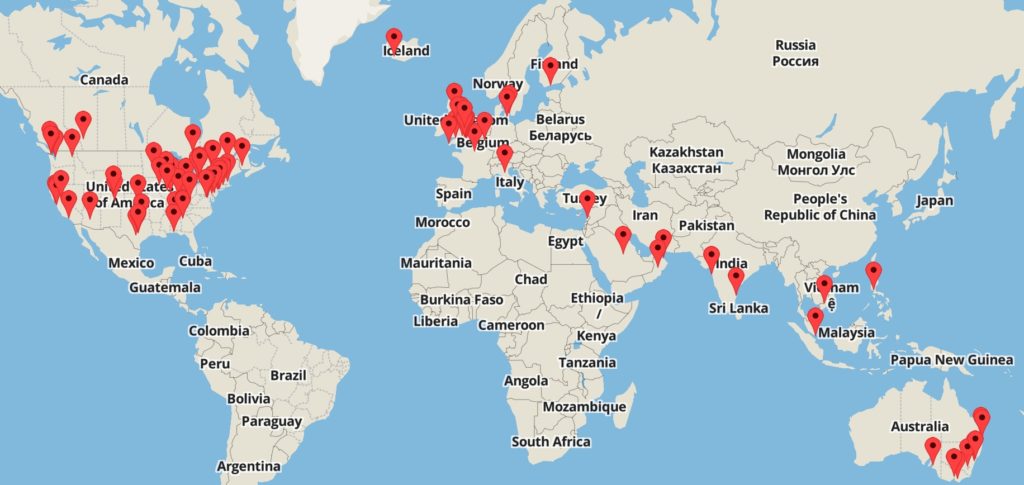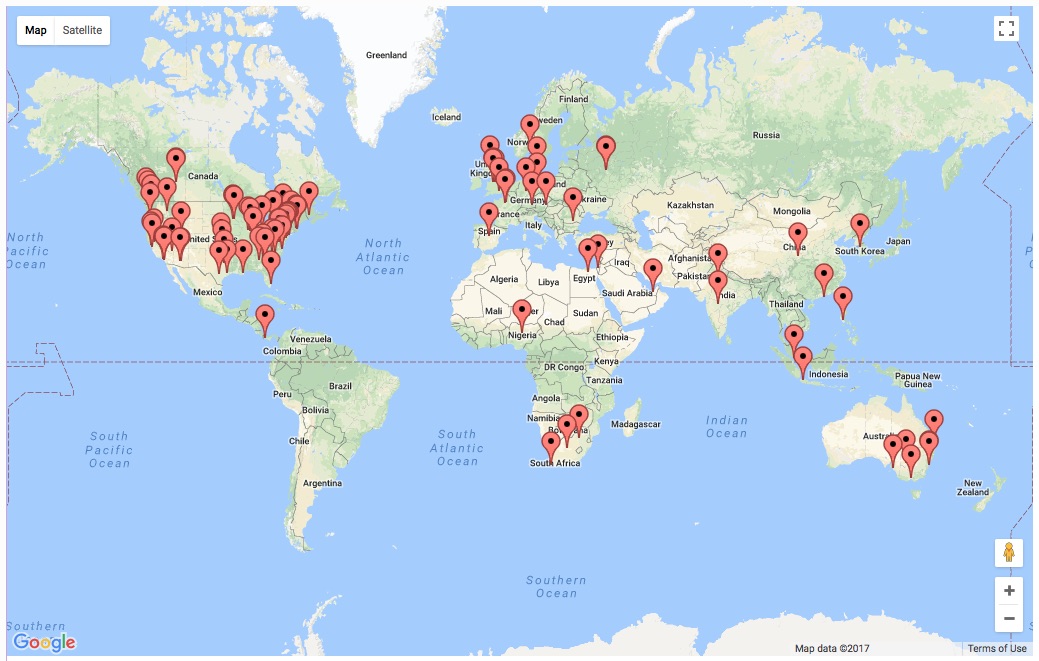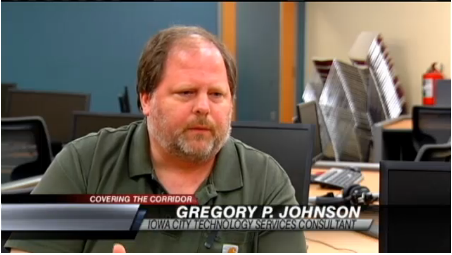Personal Update 201503 | 14 March 2015 | Saturday

Greetings,
I hope your’e doing well. Thanks for taking a moment to read my latest update. This month’s topics are writing and health.
You’ll notice I’m sending out my personal update earlier than usual. Rather than waiting until the end of the month, I’m hoping to start doing my newsletter writing near the start of each month.
Writing
I first developed an interest in writing when I was in high school and one of the first computerized word processing systems became available — running on a Radio Shack computer. I was amazed by how a word processor could completely revolutionize writing. I’ve been writing regularly since then. Most of my writing over the past 20 years has concentrated on reference documents, commentaries, product reviews, and other articles without the first person reference or perspective.
Other than my Put Your Life on a Diet book, I really don’t have much experience writing stories of fiction or non-fiction.
A recent attempt at fiction writing was the short story “Rezifp Dawn” that I started in May of 2012. After five installments, I stopped writing, but I very much want to return to it since there’s more to the story.
This month I started doing some story telling from my own life experiences including the writing “What a Leader Looks Like” about leadership and business management. In that writing I share some of my own experiences and observations about leadership.
I’m also programming my writings to be time released. So, after writing them, I set a date and time of publication for each writing. That gives me some time to reflect on them. The outcome is a more refined and distilled product. It also means that I can have writings in a queue that get automatically released periodically in intervals. This news update you’re reading now was written Friday evening, but scheduled to go live at 3:00 AM on Saturday.
Health
My main emphasis in recent months has been to cut back on some of my other activities to focus more on optimal wellness practices.
Over the past few years I’ve been working on developing a unified wellness protocol that can reduce blood pressure, lower blood sugar, improve blood cholesterol, and reduce weight. By unified, I mean a single multi-phase protocol that addresses all these conditions over time.
One local doctor I spoke with believes that bariatric surgery for weight loss and pharmaceutical drugs for the other conditions is the best solution to these common health problems. By contrast, other doctor’s I know who practice integrative medicine recommend specific diet, exercise, and lifestyle changes for meaningful long-term health improvements.
Those who practice P4 medicine believe that healthcare should be Predictive, Preventive, Personalized, and Participatory. Predictive medicine gathers data that can help reveal expected trends and outcomes. Preventative means developing and implementing a plan of corrective action before it’s needed. Personalized means each person has a program specifically designed for their unique situation. Participatory means that the ‘patient’ isn’t just receiving orders from a doctor, but participating in the entire process of developing a plan that will work.
While it’s true that many severe illnesses can be corrected or prevented by lifestyle changes, making those lifestyle changes can be difficult. There are many plans that work, but if you can’t work the plan it’s worthless.
A multi-phase approach, like the one I’m developing, makes it easier to succeed with major lifestyle changes. For example, instead of simultaneously targeting multiple conditions with parallel treatments, it’s possible to target specific conditions in a certain order and then build on that foundation. Leveraging one cure against another condition to bring it down next.
The order in which conditions are addressed makes a difference. In the fall of 2014, over time, I was able to stop consuming foods high in sugar by eating breads and carb dense snacks as my ‘go to’ nibble food. I was then able to stop consuming breads and other high carb / high glycemic index foods by using cheese and other dairy products as a reward. At some point you grow tired of cheese and the body naturally begins to crave more nutritious foods once the hunger stimulating influence of sugar has been thoroughly removed. Other items such as coffee, foods high in the unhealthy types of fat, fried foods, and foods high in salt are shedded along the way.
There are a few exceptions, such as Ezekiel 4:9 bread which, although it’s called a bread, is an entirely different kind of food and processed by the body differently because of the sprouted grains used. So, rather than causing blood sugar to increase, it seems to powerfully reduce and regulate glucose levels (at least in my experience with it).
Some foods and activities that seemingly have no health benefit, can have a strong beneficial impact after clearing the body of debris. Like working the soil before planting a garden, getting rid of sugar and other toxins really creates fertile conditions for greater positive change. Context is critical, and efficacy is often highly volatile based on existing conditions.
Food preference is one of the traits we commonly use to describe who we are. So, permanently changing your food preferences changes the core of who you are. It’s not about using herculean efforts of self control to avoid eating foods you’re craving. It’s about changing the cravings. These are two entirely different approaches.
The process is probably similar to drug addicts slowly stepping down to less addictive drugs over time to eventually get free of drug dependency. With combinations of sugar, carbs, fat, salt, caffeine, and flavor enhancers, some food products can be almost as addictive as drugs — which explains the slogan “bet you can’t eat just one.”
Indeed, much of the snack foods available are clinically developed and lab tested to powerfully activate addiction centers in the brain. (source) Not only are they addictive, but they increase hunger while seemingly blocking brain receptors that tell us we’re full. It’s really a dangerous combination that’s programmed to have a single outcome: more consumption which leads to obesity, which leads to more consumption, which is accompanied by the common ailments I mentioned above.
There’s some truth to the Tyson’s commercial below showing the insatiable appetite that a person has when eating snack food.
[youtube https://www.youtube.com/watch?v=NFDb4LH76ss?r=0]
I’ve discovered some common fast food products and grocery store foods that anyone can use to raise their blood pressure, blood sugar, and cholesterol to dangerous levels in about 30 days. I’ve also discovered some common grocery store items that can do the opposite. Most of the natural supplements and healthcare devices I’m using can be found at a corner drug store.
By following the wellness program I’m developing, I’ve been able to drop blood sugar levels by over 200 points from dangerous levels to normal levels without medication. I’ve reduce blood pressure from persistent clinical hypertension down to consistently normal (or slightly below normal) levels, also without medication. I’m now entering the cholesterol reduction and weight loss phase. This is where I’ll be significantly reducing intake of cheese and other high cholesterol foods, while increasing intake of foods known to reduce bad cholesterol.
In addition to dietary modifications, I’ve started doing regular stair climbing throughout the day. I’ve already lost 12 pounds since February 9).
There’s a lot more to this program, including some interesting wireless data collection tools (similar to biotelemetry systems) that automatically collect health data and present it in a meaningful way for actionable responses. Most of these devices are available on Amazon. This is a subset of the XTX4 project I’m working on.
I’ll be sharing more about the details of this program, and hopefully some ongoing success with it in the coming months. I plan to make the program open source and public domain.
Many thanks to all of you who keep in touch and provide support for the work I do.
~ Greg
__________
Origins. For those of you who are new to these monthly personal updates, they began over a decade ago out of a desire to share from my personal life about topics of lifeways, health, career, finances, relationships, effective living, and activism. This is based on the life map presented on the Resources For Life website.













